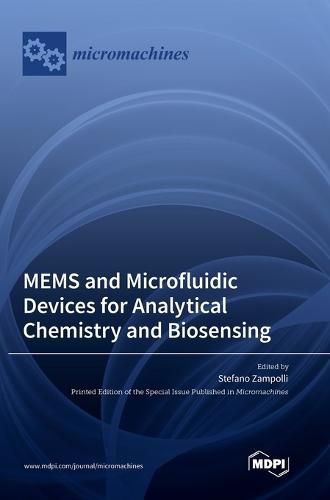Readings Newsletter
Become a Readings Member to make your shopping experience even easier.
Sign in or sign up for free!
You’re not far away from qualifying for FREE standard shipping within Australia
You’ve qualified for FREE standard shipping within Australia
The cart is loading…






This title is printed to order. This book may have been self-published. If so, we cannot guarantee the quality of the content. In the main most books will have gone through the editing process however some may not. We therefore suggest that you be aware of this before ordering this book. If in doubt check either the author or publisher’s details as we are unable to accept any returns unless they are faulty. Please contact us if you have any questions.
The outbreak of the SARS-CoV-2 pandemic has made the general public aware of the breakthrough technologies which were developed in recent years for state-of-the-art biosensing, and terms such as clinical specificity and sensitivity are now widely understood. The need for reliable point-of-care diagnostic systems during the last few years has been crucial.
Continuous developments in MEMS technology and microfluidics are key drivers for the miniaturization of lab-grade sensing systems. Micro-technologies and miniaturization allow for designing lightweight and small devices, other advantages include reduced consumption of power and reagents, faster response times, increased sensitivity, reduced environmental footprint, availability of batch production processes for low-cost and disposable devices.
This Special Issue published seven novel contributions in the fields of biosensing, lab-on-chip, organ-on-chip and related technologies such as numerical microfluidics studies, digital micro-fluidics and micromixers.
$9.00 standard shipping within Australia
FREE standard shipping within Australia for orders over $100.00
Express & International shipping calculated at checkout
This title is printed to order. This book may have been self-published. If so, we cannot guarantee the quality of the content. In the main most books will have gone through the editing process however some may not. We therefore suggest that you be aware of this before ordering this book. If in doubt check either the author or publisher’s details as we are unable to accept any returns unless they are faulty. Please contact us if you have any questions.
The outbreak of the SARS-CoV-2 pandemic has made the general public aware of the breakthrough technologies which were developed in recent years for state-of-the-art biosensing, and terms such as clinical specificity and sensitivity are now widely understood. The need for reliable point-of-care diagnostic systems during the last few years has been crucial.
Continuous developments in MEMS technology and microfluidics are key drivers for the miniaturization of lab-grade sensing systems. Micro-technologies and miniaturization allow for designing lightweight and small devices, other advantages include reduced consumption of power and reagents, faster response times, increased sensitivity, reduced environmental footprint, availability of batch production processes for low-cost and disposable devices.
This Special Issue published seven novel contributions in the fields of biosensing, lab-on-chip, organ-on-chip and related technologies such as numerical microfluidics studies, digital micro-fluidics and micromixers.